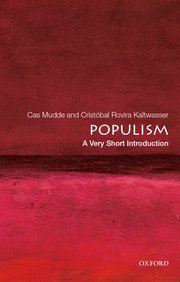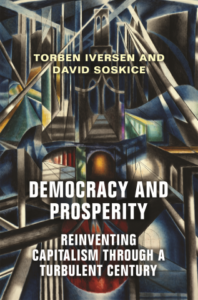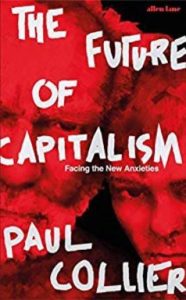 This week’s election result makes Spain the “most solid social-democracy in Europe” and “an example against the threat of advancing populism and the extreme right,” said one observer, referring to Vox, a nationalist ultraconservative party that grabbed about 10% of votes in the general election, The New York Times reports.
This week’s election result makes Spain the “most solid social-democracy in Europe” and “an example against the threat of advancing populism and the extreme right,” said one observer, referring to Vox, a nationalist ultraconservative party that grabbed about 10% of votes in the general election, The New York Times reports.
Cas Mudde, an expert on European politics at the University of Georgia, told Today’s WorldView that while the conservative Popular Party’s plight was in some sense unique — it was enfeebled by a particularly damaging graft probe that sent some of its lawmakers to prison — it fell into the trap that has already undermined center-right parties elsewhere in Europe. “Pivoting to the right, particularly on immigration and Islam, but also on other nationalist issues, will not save discredited mainstream right parties from losing significantly to the far right,” said Mudde, author of Populism: A Very Short Introduction.
“In a Europe now dominated by center-right governments that seem to live in fear of the far right or in the hands of the far right, Spain stands out instead as a fortress for social democracy,” said José Ignacio Torreblanca, the head of the Madrid office of the European Council on Foreign Relations.
 The outcome appears to stem, at least for now, “the rise of xenophobic, nationalist parties that presented a threat to the entire European project, which now lies at the heart of continental social democracy,” The New Yorker adds.
The outcome appears to stem, at least for now, “the rise of xenophobic, nationalist parties that presented a threat to the entire European project, which now lies at the heart of continental social democracy,” The New Yorker adds.
The correct response to populism’s politics of fear has to be a politics of hope based on realism – the only sort of democratic politics worth doing, argues FT analyst Martin Wolf. As Torben Iversen and David Soskice argue in Democracy and Prosperity, the stabiliser is widely shared prosperity. Without that, all is lost, especially when belief in democracy has waned. So how is democracy to be renewed? Wolf proffers ten suggestions:
- First, leadership matters. Democratic politics is not just about buying votes. It is about persuading people. ….A politician without a story will lose. Great politicians are always storytellers, from Pericles of Athens to Franklin D Roosevelt.
- Second, competence matters. It matters far less, at least in the short run, for the demagogues of right or left. Theirs is an oppositional politics, even when they are in power….
- Third, citizenship matters. A democracy is a community of citizens. The sense of what is owed to — and expected from — citizens is the foundation of successful democracies. … Foreigners can usefully participate, too. But immigration must always be managed if it is to be judged fair and politically acceptable.
- Fourth, inclusion matters. It is striking that on one well-known measure, the “gini coefficient”, inequality of market incomes is not in fact particularly high in the US. But inequality of disposable incomes (after taxes and spending) is relatively much higher. This outcome, then, is a policy choice.
 Fifth, economic reform matters. As Paul Collier argues, in The Future of Capitalism, and Colin Mayer, in Prosperity, we need reform of taxation and of the corporation if we are to create a society that is economically successful and more inclusive. ….
Fifth, economic reform matters. As Paul Collier argues, in The Future of Capitalism, and Colin Mayer, in Prosperity, we need reform of taxation and of the corporation if we are to create a society that is economically successful and more inclusive. ….- Sixth, the local matters. Interestingly, this is a theme of both Collier’s book and of a new book, The Third Pillar, by Raghuram Rajan, former governor of the Reserve Bank of India. … Devolving decisions, while also giving communities the means to revitalise themselves, must be part of a good new politics…….







